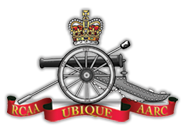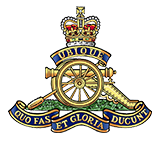Lieutenant-General AB Leslie OMM, MSC, MSM, CD (1957- )
 Andrew Leslie was born December 1957. His initial schooling was conducted in Canada, the USA, France, Cyprus, and Switzerland. His family has a tradition of military service and he joined the Army Reserves in 1977 (30th Field Artillery Regiment) while at Ottawa University. While in London, England, as a graduate student he was attached to the Honourable Artillery Company. In 1980 he attended the International Peace Academy United Nations (UN) Staff Seminar in Vienna, Austria. In 1981, he transferred to the regular force and served with 1 Regiment Royal Canadian Horse Artillery (1 RCHA) in Germany during which he completed the British Army Troop Commanders course, French Army Commando training, the hand-to-hand combat course and the combat intelligence course.
Andrew Leslie was born December 1957. His initial schooling was conducted in Canada, the USA, France, Cyprus, and Switzerland. His family has a tradition of military service and he joined the Army Reserves in 1977 (30th Field Artillery Regiment) while at Ottawa University. While in London, England, as a graduate student he was attached to the Honourable Artillery Company. In 1980 he attended the International Peace Academy United Nations (UN) Staff Seminar in Vienna, Austria. In 1981, he transferred to the regular force and served with 1 Regiment Royal Canadian Horse Artillery (1 RCHA) in Germany during which he completed the British Army Troop Commanders course, French Army Commando training, the hand-to-hand combat course and the combat intelligence course.
After a succession of field tours with mechanized and airborne combat units in Germany, Cyprus and Canada and command appointments up to regimental level, he was promoted to Colonel in early 1995 and sent to the Former Yugoslavia as Chief of Staff Sector South (Brigade Level). He was awarded the Meritorious Service Medal for his actions under fire during the fighting for Knin in August 1995. He then became Chief of Staff UNCRO (Division level), and finally Chief of Staff of UNPF (Mission level). Following the UN hand-over to NATO forces, Brigadier-General Leslie returned to Western Canada as the Area Chief of Staff in 1996 and served in that capacity during the Manitoba floods of Spring 1997.
In July 1997 he became the Commander of 1 Canadian Mechanized Brigade Group (1CMBG), an infantry-heavy formation, where the focus was on live-fire combined arms training. In early 1998 1CMBG deployed to the South shore of Montreal to assist with ice-storm disaster relief operations, followed by an almost continuous cycle of Battle Group and Brigade exercises. That same year he was awarded the Order of Military Merit. In early 1999, 1CMBG tightened its focus on complex peace support/peacemaking missions in anticipation of a deployment to Kosovo.
His training includes a variety of courses such as the combat team commander’s course, Army Staff College and the Canadian Forces Staff College. His education includes degrees in Economics and Military History, including a Masters in War Studies from RMC. Promoted Brigadier-General in late 1999, he completed both the Advanced Military Studies and the National Security Studies Courses in Toronto.
In 2000 he became the J6 of the Canadian Forces, responsible for the Groups and Regiments of the communications field force, signals/electronic intelligence, and computer network operations. He was appointed Commander Land Forces Central Area in 2002, where he was responsible for one regular and three reserve Brigade Groups and numerous support formations, training establishments, bases and units.
In July 2003 Major-General Leslie was appointed Commander of Land Force Doctrine and Training System. Major-General Leslie was appointed Deputy Commander of the International Security Assistance Force in Kabul, Afghanistan, in August 2003. Following his tour in Afghanistan, Major-General Leslie was appointed Acting Assistant Chief of the Land Staff. In 2006, he was promoted to Lieutenant-General and appointed Chief of the Land Staff.


